//Molly Merkert looks out the window of her Denver apartment on March 28. As Chinese adoptee, Merkert has felt hurt and confused by the anti-Asian comments her white extended family have made. Photos by Ali Mai | [email protected]
For Asian intercountry adoptees in white families, subjugation to racism that their parents have never experienced is isolating. With a rise in attacks and harassment against people of Asian descent, culminating in the March Atlanta spa shootings, many adoptees are dealing with their fears and trauma alone.
Discrimination toward Asians in the U.S has risen exponentially since the outset of the COVID-19 pandemic, according to Stop AAPI Hate, a program started last year to record hate incidents. In a national report released in February, Stop AAPI Hate received 503 responses detailing physical attacks, verbal harassment, shunning, spitting and other incidents in the first two months of 2021 alone. Last year 3,292 incidents were recorded.
While Asian adoptees expected this alarming trend, their adoptive families are shocked. For many, adoptive parents aren’t equipped to talk about the racism their children face. Some parents don’t even acknowledge its existence, according to Lynelle Long, founding director of the InterCountry Adoptee Voices. The organization is inclusive to adoptees from any country of origin and offers a worldwide platform that connects leaders of intercountry adoptee-led groups. Its Facebook group has 1,600 members, including 50 American leaders. Long formed ICAV in 1998 after exploring her identity as a Vietnamese adoptee to a white family in Australia. The lack of an existing support group sprang her into action.
“From what I observe within ICAV and other adoptee spaces, the majority comment is how their adoptive families have no clue about how to respond to racism,” Long wrote in an email. “Worse is the majority of families don’t seem to even notice racism exists. There is a predominant color blindness within our white adoptive families.”
She said she often hears from adoptees that their parents or siblings say something to the effect of, “But I don’t see you as Asian, you’re one of us!”
Color blindness is just one of the commonly shared experiences amongst AAPI adoptees with white parents. Long said that other themes include confusion around identity, rejection from the culture of their original country and the country they were adopted into, pressure to feel grateful to their adoptive relatives, lack of validation of their experiences, and family members exhibiting racism towards their race.
While Asians with biological families are marginalized as well, being adopted adds complicated layers, Long said. The most isolating factor is living in between two worlds while never fully belonging to either.
“Adoptees are more isolated from having racial and cultural mirrors,” she wrote. “Non-adopted AAPI often have their biological families, kin and ecosystems around them to share the experience with, to mirror each other; whereas adoptees do not. We are always in between those spaces and groups, never quite fitting in, never quite being accepted because we get judged on our physical and racial appearance. Yet as soon as we speak, it’s obvious we are not true members of our birth clan.”
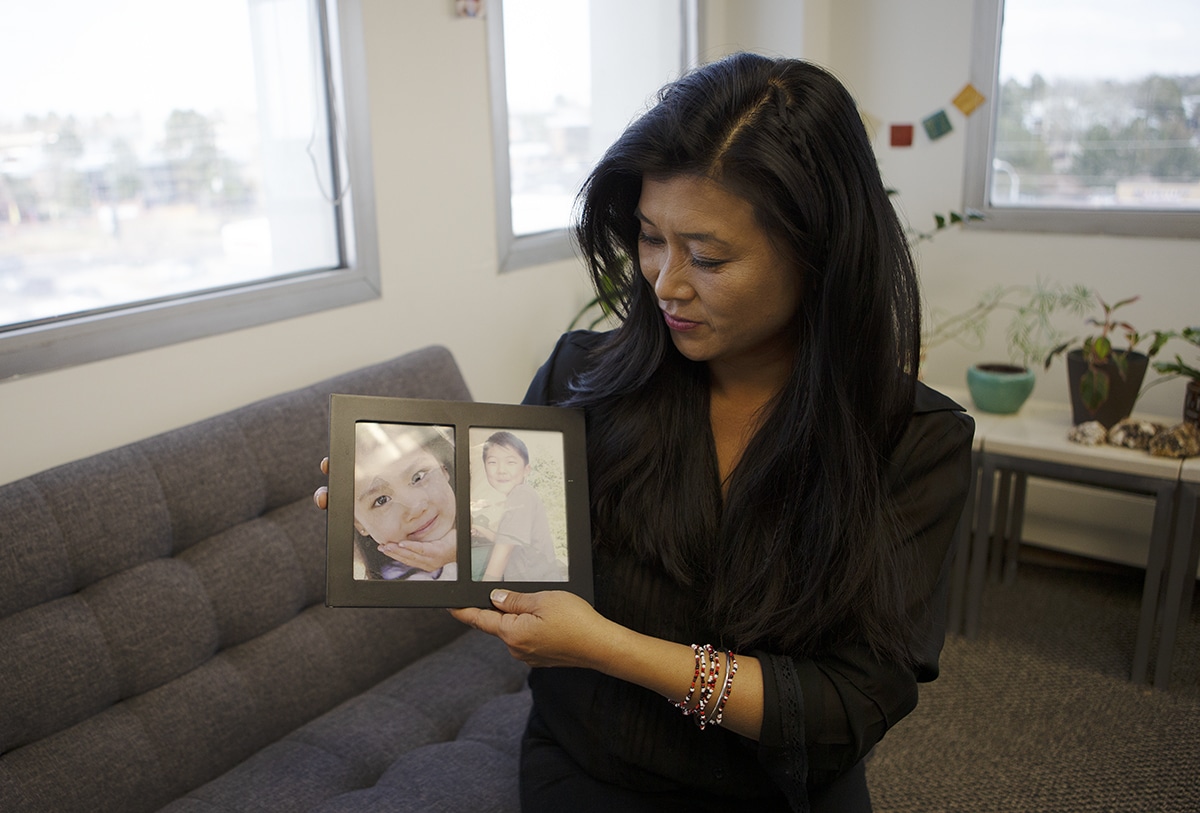
Ashlee Lewis – Aurora
In 1986, 11-year-old Ashlee Lewis and her two younger brothers boarded an airplane for the first time. The children from Jeonju, Korea were put up for adoption by their father three years prior after their mother died unexpectedly. He told them that if they stayed, the siblings would be split between family members, but they could stay together if they went to the U.S.
Lewis remembers fearing the unknown during the nearly 24-hour flight. When they landed in America, they were greeted by a white couple—two strangers who spoke a different language were suddenly their new parents.
Before this, Lewis had only seen white people on television or as visitors at the orphanage she was placed in. But in her new home in Boulder, a city that is nearly 90% white, her brothers became her only sources of cultural mirroring.
Assimilation into American culture began with her parents renaming her Ashlee from Yong Su. But her proximity to whiteness didn’t shield her from racism. It was a topic that her parents shied away from.
“It’s been a very isolating experience to find my identity, and it was not something that my parents could help,” Lewis said.
She recalls a boy calling her chopsticks at her YMCA daycare club. A girl in seventh grade told her to go back to her own country and pick rice. Lewis did what her parents advised: Ignore them.
In high school, Lewis sought out fellow Koreans but wasn’t welcomed. She was met with judgment for being adopted.
“When I came to America, it was the first time I experienced racism,” Lewis said. “And then when I started to hang out with the Koreans, that was the first time I experienced that being an adoptee had our own category. And it was the first time I realized that being an adoptee was part of my identity.”
She didn’t fully acknowledge the racism she experienced during her 35 years in the U.S. until recently. After hearing about the spa shootings in Atlanta, she cried for three hours. It led her to seek out other Asian adoptees and speak out against anti-Asian hate at a Denver vigil for the victims.
Lewis said she’s on a continuous journey for self-healing. Motherhood was the greatest step toward that. Lewis had her now-teenage son and daughter with her ex-husband, a non-adopted Korean American.
She doesn’t blame her parents for not understanding racism firsthand. But now as a parent herself, she’s able to support her Asian children in a way her parents never could.
“The kind of racism that you go through, your parents cannot equip you,” Lewis said. “When my kids go through racism, they can come home and I can know that feeling.”
Molly Merkert – Denver
Ever since former President Donald Trump was elected into office, Molly Merkert, an adoptee from China, could see a rift forming between her and her extended family who supported him.
That crack only widened when the president started using terms like “the kung flu” and “the China Virus” when referring to COVID-19 as the pandemic began infiltrating people’s daily lives. Merkert started seeing her family repeat the same rhetoric on Facebook. Merkert’s uncle continually scapegoated Chinese people for the pandemic, announcing that he will never eat at a Chinese restaurant again. Merkert said that her mother later talked to him about his comments, reminding him that his niece was adopted from China, but overall the issue was laughed off.
“It’s a scary time for sure with the pandemic, and then also the racism,” Merkert said. “But it’s even more confusing when you add on the fact that the people who are perpetrating the racism look like my family. And they’re attacking people who look like me. It’s very confusing and scary.”
Merkert has felt fear and confusion by the increased hostility toward Asians along with her family’s scapegoating of Chinese people for the pandemic. According to the Stop AAPI Hate National Report, Colorado is ranked 13 in the top states for reported incidents and had 44 reports between March 2020 and February 2021.
Merkert was adopted from China when she was about two years old by her white parents. They lived in California before moving to Colorado Springs when she was 11. Since last fall, Merkert has lived in a sunny Denver apartment with her cat Gato while she studies architecture at CU Denver.
Anti-Asian racism wasn’t discussed much in Merkert’s household. Conversations were had only after an incident or if Merkert started the dialogue. When other kids made fun of her eyes or skin, she was told to brush it off like any kind of bullying.
She recalls the first time she felt fetishized for being an Asian woman when she was 12 years old. A boy at school consistently harassed her, calling her “wonton” and making explicit sexual comments about her race. That led to a “half-discussion” with her mother about the stereotypes Asian women face.
Merkert said she has had more productive conversations with her father, but most conversations—including those around the Atlanta spa shootings—were initiated by her.
Her parents have tried to encourage Merkert to explore her Chinese heritage and keep that part of herself alive, but her extended family sees her differently from other Asians.
“I don’t think they actually see me as Chinese,” Merkert said. “I think they just see me as part of their family. And since they are white, then I am white. It’s a real erasure of who I am.”
Merkert said that white families who adopt children of color should be talking about the realities of racism before something bad happens.
“They need to know that these conversations about race should happen with their children, and should probably happen at a pretty young age,” she said. “They should make themselves knowledgeable enough to talk comfortably about things that are going to happen. Your child is going to have a very different experience of America.”
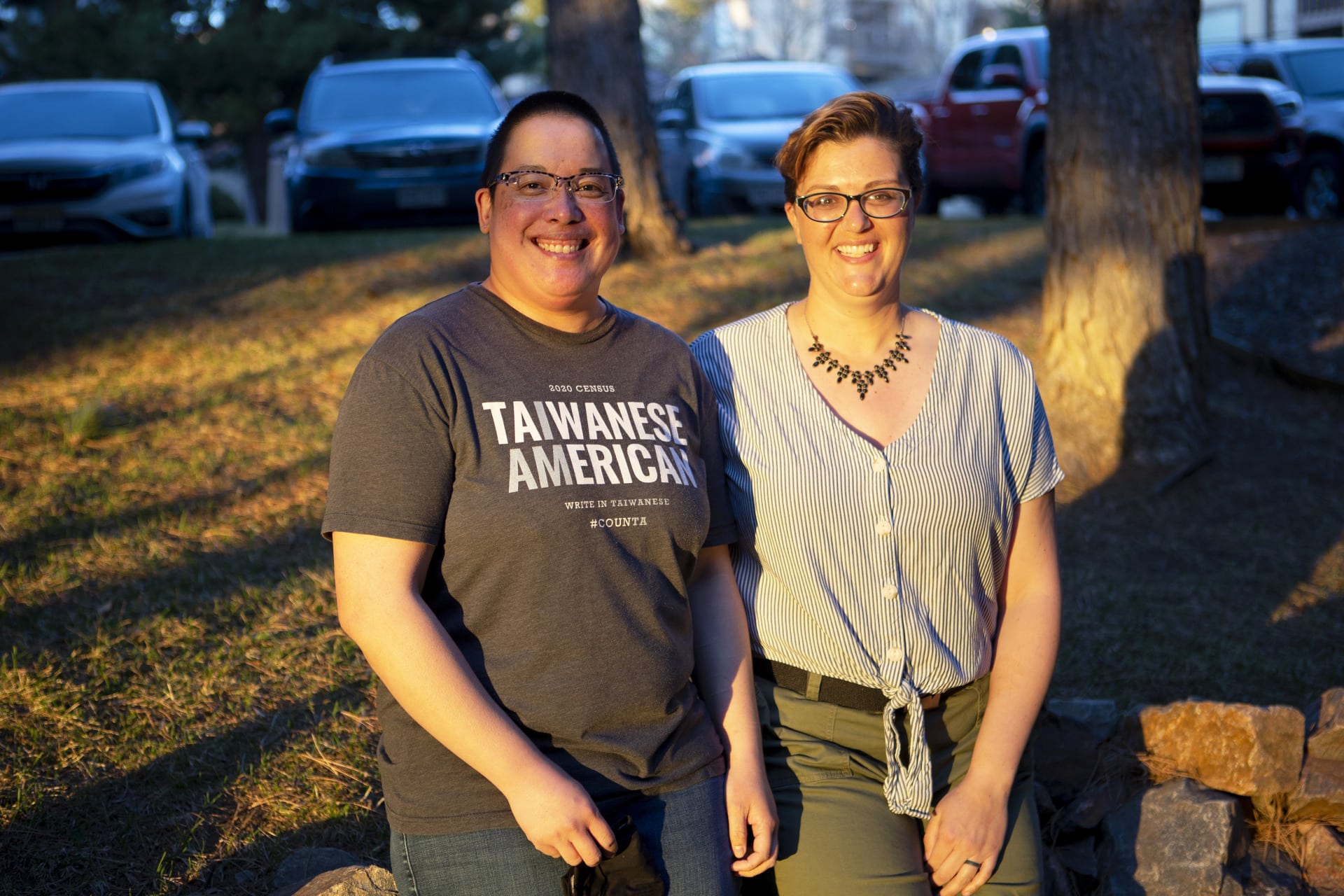
Carola Tall – Denver
Carola Tall’s mother gave her up in Taiwan after she was born prematurely and her family couldn’t pay the medical bills. A single American woman working as a Christian missionary in Taiwan covered the payment and adopted her.
Tall and her mother moved to a small town in Nebraska when she was two years old. The only other Asian people in town were the owners of a Chinese restaurant.
Some of the things Tall’s mother said growing up stick out to her today at age 43. She recalls her mother referring to her as Chinese instead of Taiwanese. Jokes were made about Tall being her mom’s souvenir from her time overseas. When Tall was young she thought it was cute, but now she finds it offensive.
Tall is descended from two aboriginal groups in Taiwan, the Amis and Hakka tribes, who reside in mountain regions. Her adoptive mother always referred to her biological family as “poor mountain people.”
“I was embarrassed to be from Taiwan. I mean, my mom, even though she spent time over there being a missionary, didn’t have a lot of great things to say about anything about Taiwan, or Taiwanese people, or my parents,” Tall said. ”So I really didn’t like that I was from Taiwan. It wasn’t until I became an adult that I could appreciate it.”
Though recent times in America have been frightening for Tall, she feels more connected with the Denver-area Asian communities. Growing up as an adoptee, she didn’t know how to connect with other Asians. But in March, she attended demonstrations condemning anti-Asian hate in the wake of the shootings. Those events were among the few times she saw people who looked like her outside Taiwan.
“The events of the vigil and the rally have really helped me see that there is a larger and wider community of Asian people and there’s a network, and there are resources. I think I maybe just didn’t know where to look,” Tall said.
Today, Tall is estranged from her adoptive mother and lives in Denver. Along with not feeling accepted for being Taiwanese, she faced judgment for coming out as LGBTQ+ when she was 22. Her mother never approved of her wife of two years, Katie.
Some of Tall’s fellow intercountry adoptee friends never felt a yearning to find their biological families. But a severed relationship with her adoptive mother encouraged Tall to find her parents.
The first time she met her biological family was in 2004. She met her parents and some of her siblings who were adopted into Taiwanese families and stayed close with their birth family. Tall has since gone back a few times, most recently in 2020 before the pandemic. For Tall, meeting her family was healing.
“As the plane comes in over Taipei to land I have this really strong feeling like I’m home, even though I haven’t grown up there,” Tall said. “When you see people who look like you, and who have your traits and stuff, it’s really overwhelming.”
The last time Tall visited, she brought Katie to celebrate her birth mom’s 70th birthday in February 2020. At the party, her mother pulled Tall aside and had a translator tell her that she didn’t care who she was, as long as she was happy.
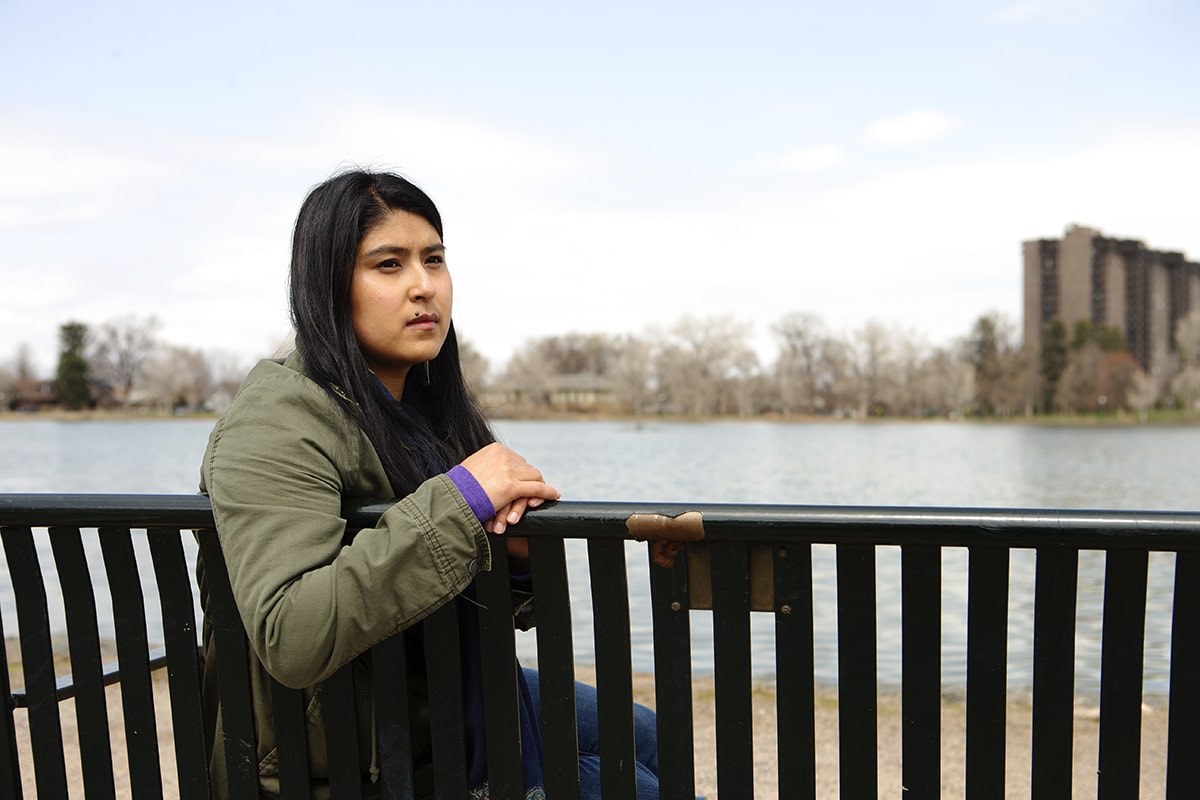
Ivy Buchanan – Denver
Ivy Buchanan, born in Kazakhstan in Central Asia, was adopted young and grew up in the Greater Denver Area. Her parents often talk about social justice issues, but were still shocked by the rising hate crimes against people of Asian descent. While Buchanan was upset, she wasn’t surprised.
She currently lives with her parents and shares daily walks with her mom, exploring the different parks and trails around Denver. As news of public attacks surfaced, her mother made comments about being concerned for her own safety, walking with her Asian daughter. She now carries pepper spray. Buchanan said that while the comments aren’t explicit, she knows her mom is feeling less safe in the world because it’s less safe for her adopted child.
“They’ve even said they’ll forget that I’m Asian because I just am a member of the family and they forget that to the world I look different, and that, unfortunately, can affect safety,” Buchanan said.
Buchanan has the unique experience of experiencing bullying and microaggressions for ethnicities other than her own, as her appearance is ethnically ambiguous. She’s received racist comments toward her about Hispanic, Middle Eastern, Native American and Black communities. She has to consistently monitor strangers’ reactions, to see what ethnicity they might assume she is.
Though her parents can’t fully understand Buchanan’s lived experiences, she said they are working toward their own awareness and dismantling their internalized beliefs.
They have started with conversations around easier-to-digest topics, including Dr. Seuss Enterprises’ decision to pull six books from shelves that showed racist imagery in March. Sometimes she feels her parents are clinging to their beliefs or that the conversations don’t move quick enough, but she’s glad they are making the effort.
“I think [they’re] conversations that I hope are happening in a lot of households, but sometimes you will get that frustration,” she said.”
We hope you enjoyed this article! Did you know you can support your local press for FREE by becoming a member? Subscribe today.

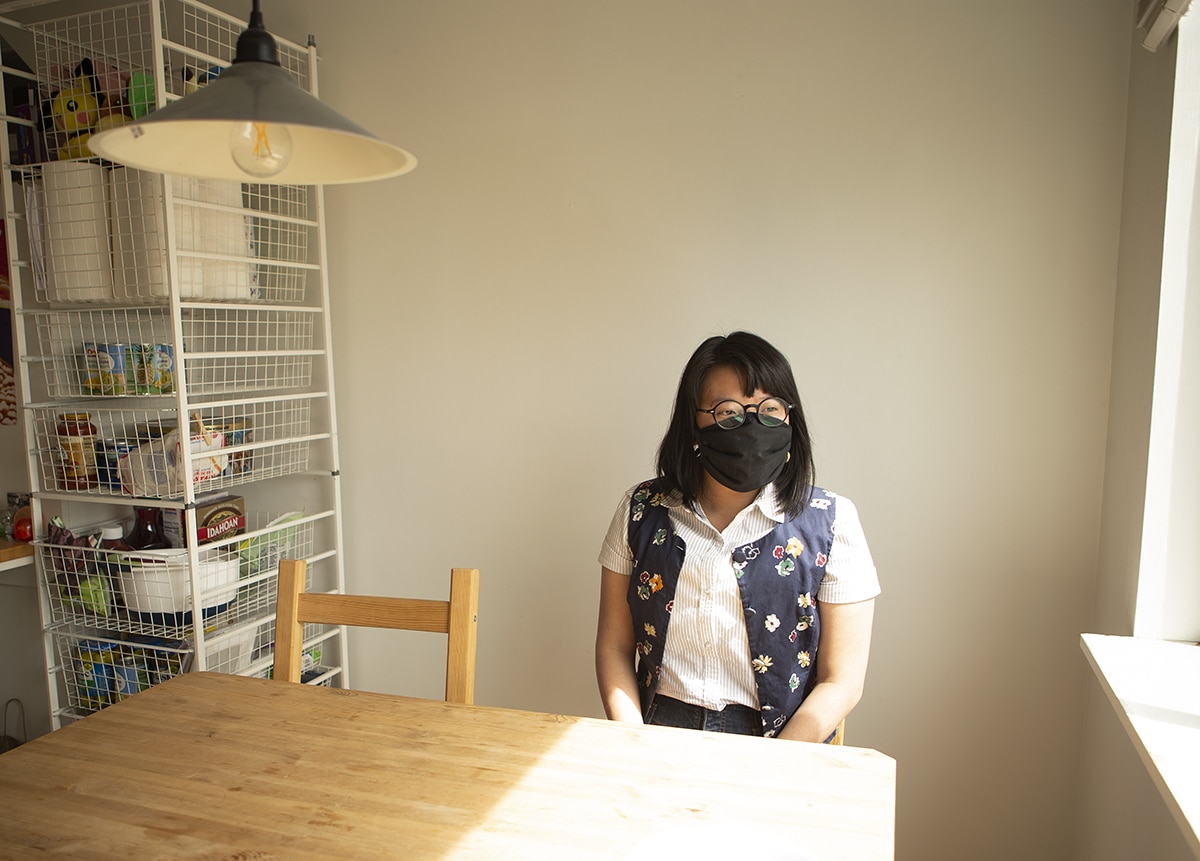

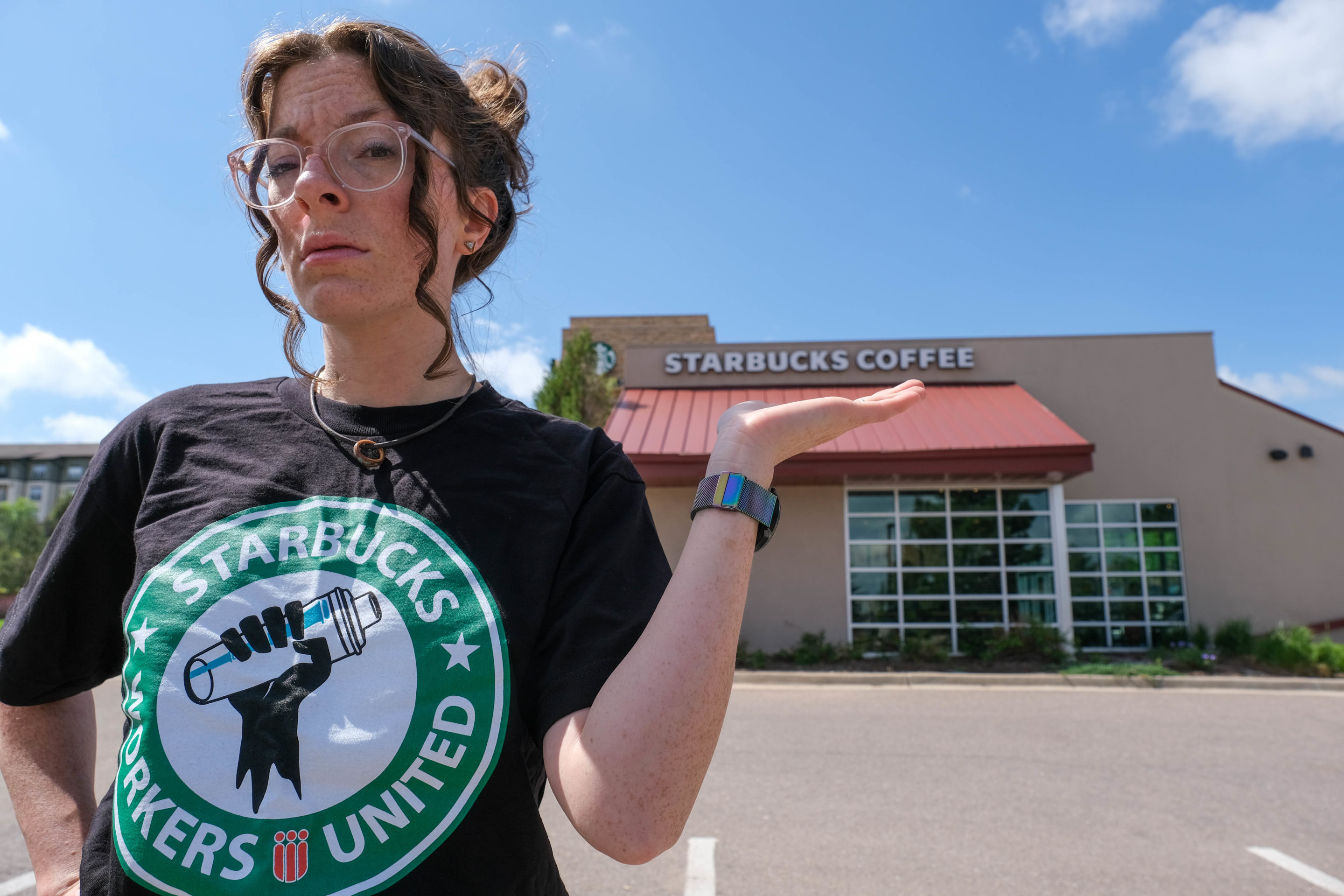
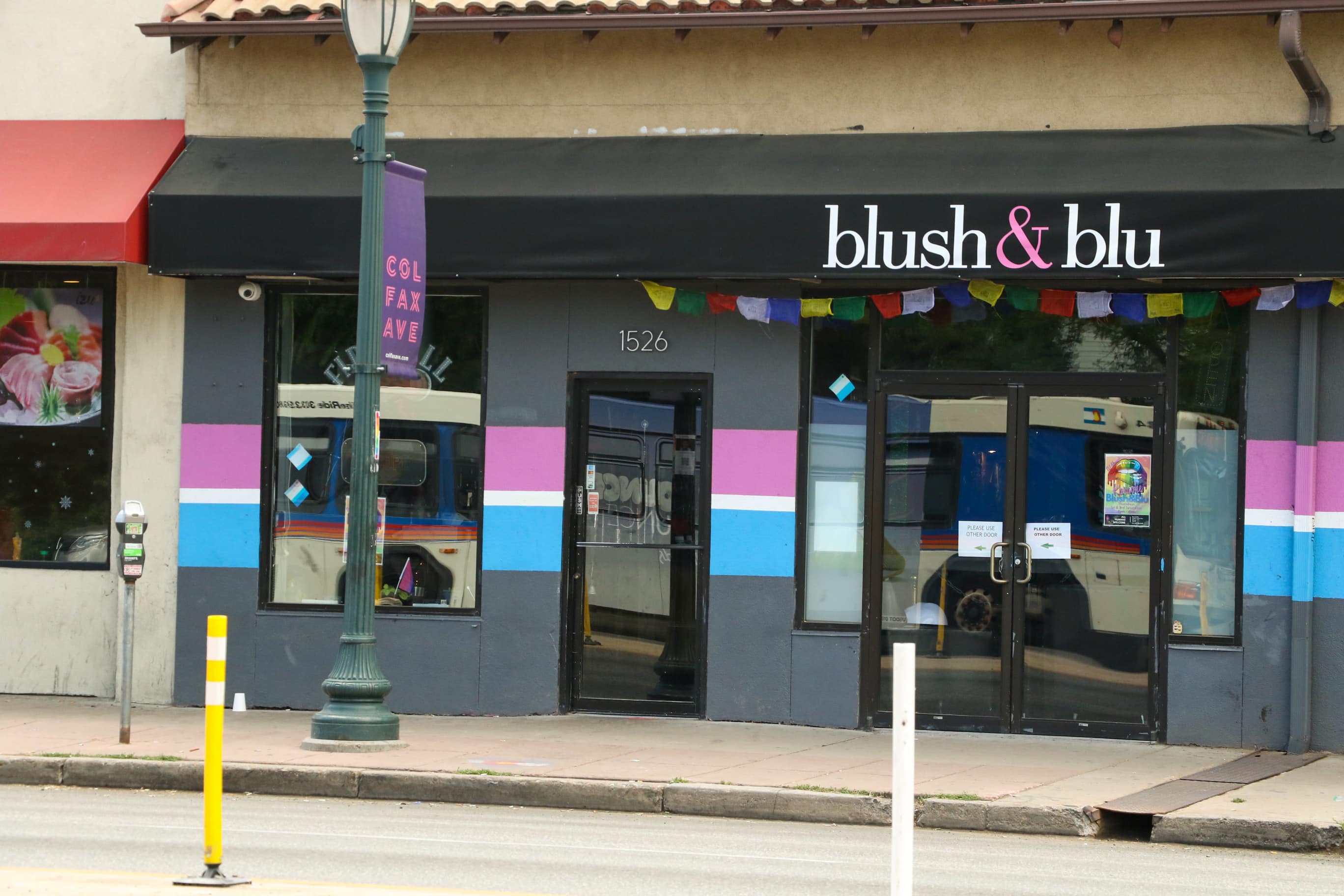
0 Comments